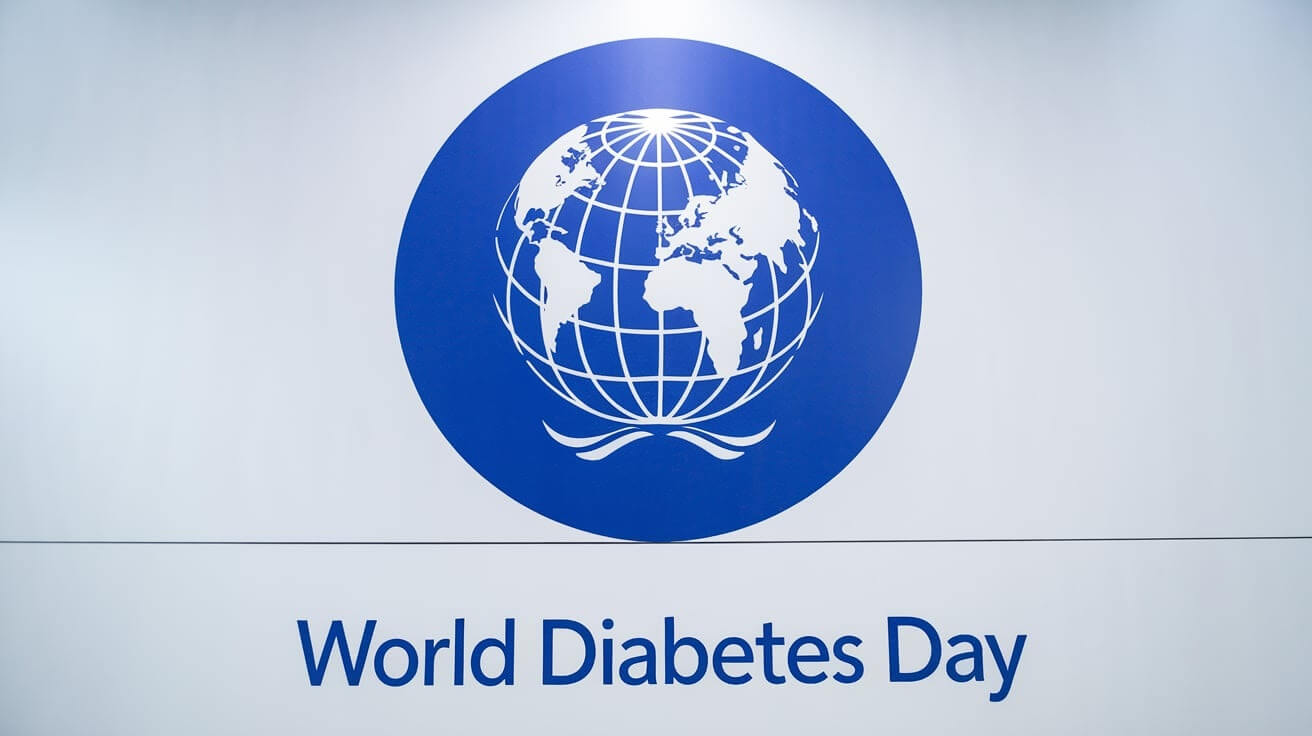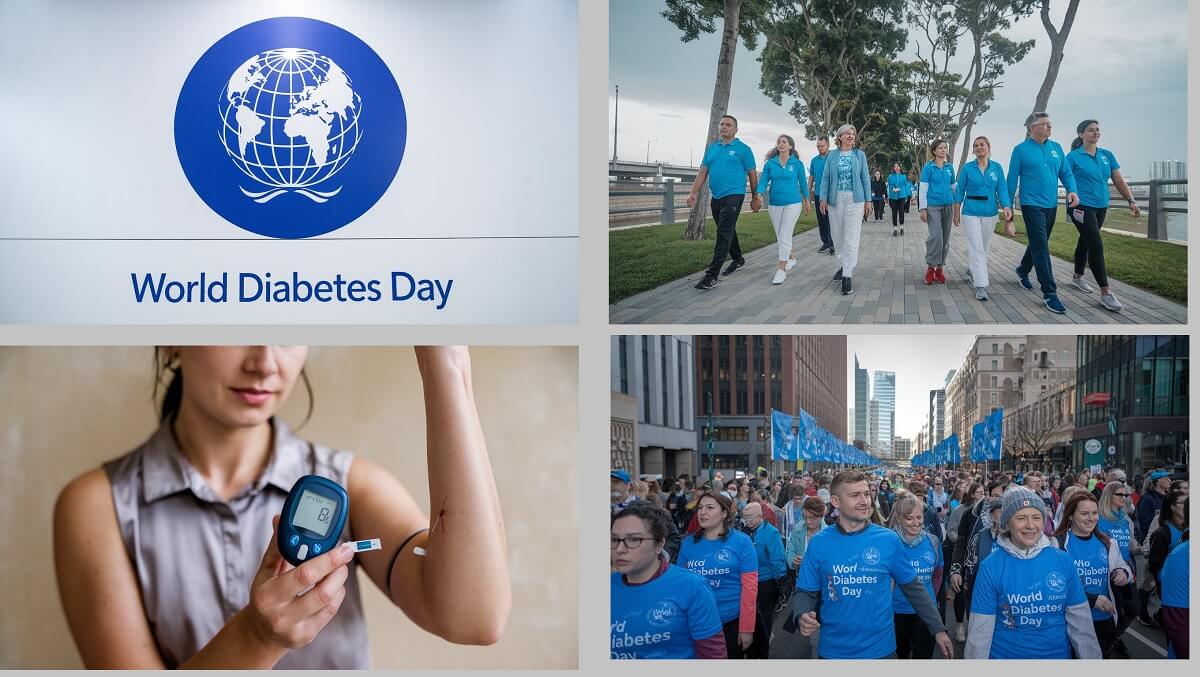
World Diabetes Day: Raising Awareness and Empowering Change
Diabetes is a pressing global health issue that affects millions of people worldwide. Currently, over 463 million adults are living with diabetes, and this number is projected to soar to 700 million by 2045, according to the World Health Organization (WHO). This chronic condition impacts people of all ages, races, and socioeconomic backgrounds, making it a universal challenge that demands immediate attention.
At its core, diabetes is a condition where the body either cannot produce enough insulin or cannot use it effectively. Insulin is a crucial hormone that helps control blood sugar levels.
Without effective management, diabetes can result in serious complications, including heart disease, kidney failure, nerve damage, and vision loss. Sadly, many individuals go undiagnosed or do not receive adequate care due to barriers like limited healthcare access or insufficient awareness.
What makes diabetes particularly challenging is its ripple effect on individuals, families, and societies. Beyond the health risks, diabetes places an enormous financial burden on patients and healthcare systems. The direct costs of managing diabetes, coupled with indirect costs such as lost productivity, make it one of the most expensive chronic conditions to address globally.
Countries with lower and middle incomes face significant challenges because they often lack adequate resources for early detection and effective diabetes management.
Diabetes isn’t an inevitable condition. With proper education, timely detection, and healthy lifestyle changes, Type 2 diabetes can often be prevented or delayed, while other forms can be effectively managed. This is why initiatives like World Diabetes Day are so important—they equip individuals with the knowledge and resources to address this escalating health challenge.
What is World Diabetes Day?
World Diabetes Day, recognized annually on November 14, is the largest global campaign for diabetes awareness. Established in 1991 by the IDF (International Diabetes Federation) and the WHO (World Health Organization), its mission is to increase awareness about diabetes while promoting improved prevention, education, and care worldwide.
The date holds significant meaning, as it commemorates the birthday of Sir Frederick Banting, who, along with Charles Best, co-discovered insulin in 1921. Insulin revolutionized diabetes treatment, saving countless lives and providing a lifeline for millions who rely on it daily.
World Diabetes Day brings together individuals, communities, and organizations to work collectively in combating diabetes. Its goal is to educate the public about the risks of diabetes, promote healthy lifestyles, and advocate for equitable access to essential medications and resources. Events range from free screenings and educational workshops to social media campaigns and large-scale community rallies.
Each year, the campaign adopts a specific theme to focus global efforts on pressing diabetes-related issues. A recurring focus has been "Access to Diabetes Care," highlighting the stark inequalities in diabetes treatment worldwide. Millions of people lack access to affordable insulin, glucose monitors, and professional guidance, leading to preventable complications and deaths.
World Diabetes Day is more than just a day of recognition—it's a call to action. It reminds us that addressing diabetes requires a collective effort from governments and healthcare providers to individuals and families. Together, we can create a world where everyone affected by diabetes has the tools and support to lead healthier, more fulfilling lives.
History and Significance
The Origins of World Diabetes Day
World Diabetes Day was created in 1991 by the IDF and WHO in response to the alarming rise in diabetes cases globally. In 2007, it was recognized as an official United Nations health awareness day, emphasizing its importance globally.
Why November 14 is Special
The date honors Sir Frederick Banting, the co-discoverer of insulin, whose birthday falls on November 14. Insulin, discovered in 1921, remains a life-saving treatment for millions living with diabetes, highlighting the importance of innovation in healthcare.
Theme and Its Importance
Focus on Access to Diabetes Care
A recurring theme for World Diabetes Day is "Access to Diabetes Care." This focus highlights the gaps in diabetes treatment and education. Despite advancements, many still lack access to essential tools like insulin, blood sugar monitors, and primary diabetes education.
Why This Theme Matters
Diabetes care should be a universal right, not a privilege. By emphasizing access, the theme calls attention to underserved communities' inequalities. Improved access leads to better outcomes, reduced complications, and healthier lives.
The Global Impact of Diabetes
Key Statistics and Insights
-
Over 1.5 million deaths annually are directly attributed to diabetes (WHO).
-
More than 50% of people with diabetes live in low- and middle-income countries.
-
Untreated diabetes is a significant contributor to heart disease, kidney failure, and vision loss.
How Diabetes Affects Lives Worldwide
The burden of diabetes extends beyond physical health. It impacts mental well-being, family dynamics, and financial stability. For many, managing diabetes involves significant out-of-pocket expenses, leading to economic strain.
Breaking Common Myths About Diabetes
Common Myths and Facts
-
Myth: Only older adults get diabetes.
-
Fact: Type 1 diabetes often begins in childhood, and Type 2 diabetes can develop at any age.
-
Myth: Overeating sugar causes diabetes.
-
Fact: While poor dietary habits contribute, other factors like genetics and inactivity play a significant role.
-
Myth: Insulin cures diabetes.
-
Fact: Insulin is a treatment, not a cure. Diabetes requires lifelong management.
Addressing these myths fosters better understanding and reduces the stigma surrounding diabetes.
How the World Observes World Diabetes Day

Community Events
Communities host events like free diabetes screenings, health fairs, and fitness challenges to spread awareness and encourage healthier lifestyles.
Ways Organizations Contribute
Non-profits and healthcare providers run campaigns, sponsor research, and hold educational workshops to empower people with the knowledge to prevent or manage diabetes.
How You Can Participate
Even small actions make a big difference. You can:
-
Share educational posts on social media using hashtags like #WorldDiabetesDay.
-
Wear blue to symbolize diabetes awareness.
-
Organize or join local events to engage your community.
Join the movement, participate in World Diabetes Day, and participate in diabetes awareness activities.
Prevention and Management of Diabetes
Practical Tips for a Healthier Life
Taking control of your health is a powerful way to prevent or manage diabetes effectively. Small, consistent changes to your lifestyle can significantly impact your overall well-being. Here are some practical, actionable tips to guide you toward a healthier life:
1. Adopt a Balanced Diet
Your diet plays an essential role in managing and preventing diabetes. Focus on consuming nutrient-rich foods that provide sustained energy and help regulate blood sugar levels:
-
Whole Grains: Add foods like quinoa, oats, and brown rice to your diet to provide a consistent and reliable energy source.
-
Lean Proteins: Choose foods like chicken, fish, tofu, and legumes to promote muscle health and satiety without spiking blood sugar.
-
Healthy Fats: Opt for heart-friendly fats from sources like avocados, nuts, seeds, and olive oil.
-
Vegetables and Fruits: Include a variety of colorful fruits and vegetables in your meals daily, focusing on non-starchy options such as spinach, broccoli, and bell peppers.
Limit sugary beverages, refined carbohydrates, and processed foods, as they can increase blood sugar spikes and contribute to weight gain. Instead, try home-cooked meals that allow you to control ingredients and portion sizes.
2. Stay Active
Regular physical activity (RPA) is essential for maintaining a healthy weight, improving insulin sensitivity, and boosting overall energy levels. Aim for at least:
-
Engage in at least 30 minutes of moderate physical activity daily, like walking, cycling, or swimming.
-
Incorporate strength training exercises twice weekly to build muscle and enhance metabolism.
If a busy schedule makes formal exercise challenging, incorporate movement into your daily routine. For example, take the stairs instead of the elevator, take short walks after meals, or engage in hobbies like gardening.
3. Avoid Risky Habits
Some lifestyle choices can raise the risk of diabetes and other health problems. Addressing these behaviors is a crucial step toward better health:
-
Quit Smoking: Smoking raises the risk of developing insulin resistance and Type 2 diabetes. Consider seeking support through smoking cessation programs or counseling if needed.
-
Limit Alcohol Consumption: Don't drink too much alcohol. It can interfere with blood sugar regulation and may lead to weight gain. Stick to moderate drinking guidelines—up to one drink per day for women and two for men.
By adopting these practical lifestyle changes, you can reduce your risk of diabetes and enjoy improved physical and mental health. Remember that even small, steady changes can have a profound and lasting impact over time.
The Role of Early Detection
Regular check-ups can identify prediabetes early, preventing the progression to Type 2 diabetes. Simple tests like blood sugar monitoring can save lives.
How to Take Action
Participating Locally and Globally
Look for events near you, such as diabetes awareness walks or health workshops. These events create opportunities to learn, connect, and contribute to the cause.
Using Social Media to Make a Difference
Social media is a powerful resource for advocacy. Share infographics, personal stories, or facts about diabetes, and use hashtags like #WorldDiabetesDay to amplify your message.
Frequently Asked Questions (FAQs)
-
What is World Diabetes Day?
-
It's an annual global initiative to raise awareness about diabetes and promote better care and prevention strategies.
-
Why is November 14 crucial?
-
It honors Sir Frederick Banting, co-discoverer of insulin.
-
What's the recurring theme of World Diabetes Day?
-
A key theme is often "Access to Diabetes Care," emphasizing equality in healthcare access.
-
How can I contribute to World Diabetes Day?
-
Participate in local events, share resources online, or donate to diabetes-related organizations.
-
What are the early symptoms of diabetes?
-
Symptoms include frequent urination, excessive thirst, fatigue, and unexplained weight loss.
Conclusion:
World Diabetes Day reminds us that we can tackle the global diabetes crisis together. We can make a significant difference by advocating for equal access to care, raising awareness, and adopting healthier lifestyles.
Let's commit to action—whether spreading awareness, joining a local event, or making lifestyle changes. Small steps lead to meaningful impact.
International Days and Weeks

